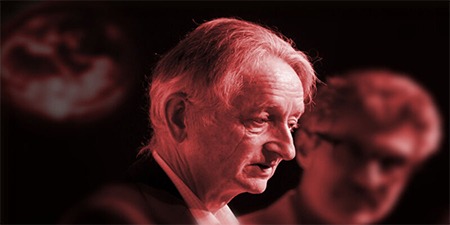AI pioneer Dr. Geoffrey Hinton quits Google to speak freely about AI dangers
JournalismPakistan.com | Published: 2 May 2023
Join our WhatsApp channel
Dr. Geoffrey Hinton has resigned from Google over concerns about the risks of artificial intelligence. He believes unregulated AI development could lead to job loss and severe threats to humanity.Summary
AI pioneer Dr. Geoffrey Hinton has resigned from Google due to his concerns about the potential risks of artificial intelligence (AI) without appropriate constraints. Dr. Hinton, who played a significant role in developing the basic technology behind today's generative AI systems, is worried that the rush to develop AI products could lead to disastrous consequences, including disinformation, job loss, and even posing a threat to humanity.
During an interview with The New York Times, Dr. Hinton expressed his worry about the future impact of AI, stating, "Look at how it was five years ago and how it is now. Take the difference and propagate it forwards. That's scary." With an AI background dating back to 1972, Dr. Hinton's work has significantly influenced current practices in generative AI, and his contributions to developing neural network algorithms have paved the way for deep learning.
Although Hinton did not sign the open letter from a group of researchers calling for a six-month moratorium on developing new AI systems "more powerful" than OpenAI's GPT-4, he believes that intense competition among tech giants like Google and Microsoft could lead to a global AI race that can only be stopped through international regulation. Dr. Hinton emphasizes collaboration between leading scientists to prevent AI from becoming uncontrollable.
Dr. Hinton is also concerned about the spread of false information through photos, videos, and text, making it difficult for people to distinguish the truth. He is also apprehensive that AI could disrupt the job market, initially complementing human workers but eventually replacing them in roles such as paralegals, personal assistants, and translators who perform routine tasks.
Dr. Hinton's long-term concern is that future AI systems could pose a threat to humanity as they learn unexpected behavior from vast amounts of data. "The idea that this stuff could actually get smarter than people-a few people believed that," he told the Times.
KEY POINTS:
- Dr. Hinton resigns from Google to speak about AI dangers.
- He fears unregulated AI might cause disinformation and job losses.
- Hinton emphasizes the need for international AI regulations.
- He warns of AI potentially surpassing human intelligence.
- His work has heavily influenced modern generative AI technology.

























